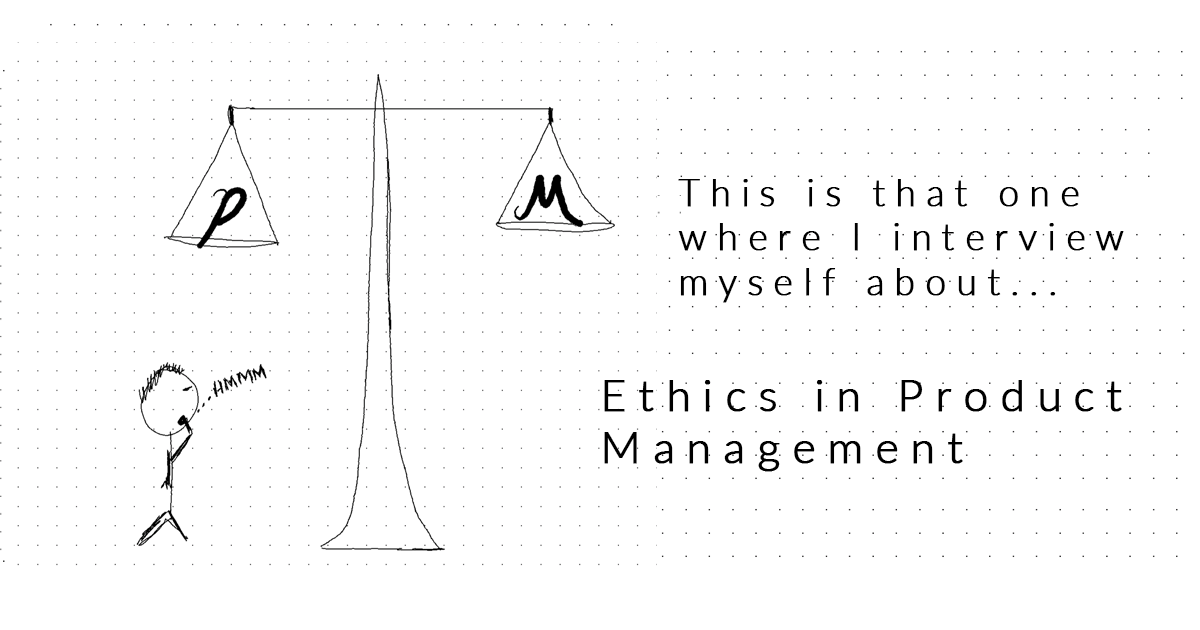Today, our conversation delved into the critical role of ethics in product management, especially within the mental health sector. We emphasized that ethics should never be compromised for profit, highlighting that ethical decisions are essential for long-term success. At Koa Health, ethical considerations are deeply embedded in company culture and decision-making processes, supported by an Ethics Committee and aligned leadership. You outlined a structured approach to ethical decision-making, including defining problem statements, setting KPIs and counter-metrics, assessing trade-offs, and ensuring executive alignment. Readers can gain valuable insights into how maintaining rigorous ethical standards can differentiate a company and foster sustainable success.
Interviewer: How do you personally define the balance between profits and ethics in your role as a product manager? Are there any guiding principles or frameworks you use to navigate this balance?
Brody: Great place to start. I'll point out here that I find it interesting that there is likely a very wide definition of ethics in product management based on who you speak with and the industry they're in. I also want to say that even though I was the one who asked the question, I don't like it. I don't think there should be a balance between profits and ethics. Ethics are crucial for the success of a business - as a product manager if you're not prioritizing ethics at each step, your profits will show that sooner than later. I'm not sure I have a specific framework, but when a situation arises where profits may be in conflict with ethics, I always ensure that I step back and fully understand all of the implications of the feature/product.
Interviewer: That's a powerful perspective. Let's dig a bit deeper into this:
Given that you believe ethics should be prioritized unequivocally over profits, can you share an example where maintaining ethical standards directly contributed to the success of a product or the overall business? How did this decision impact the company, both in terms of financial performance and reputation?
Brody: Let me be clear - ethics are a non-negotiable for me. If a solution is unethical, but provides profits, then it's not a solution that should be considered. However, there are often times when a solution presents as "less ethical" and "faster profit" or "more ethical" and "slower profit". These are the tradeoffs that become tricky, and create tension at the executive level. In my work in the mental health field, we come across ethics a fair amount. A specific example of this is that Mental Health companies that provide teletherapy often make the most margins on the therapy appointments themselves. That means, the more sessions you provide, the higher your revenue. In product, (if you didn't think about ethics) would lead to prioritizing experiences within the app that promotes users to book more sessions, faster - regardless of their clinical need. At Koa Health we think about this often, and with great care. Our product team ensures we prioritize improving the mental health of our users and preventing the need for clinical intervention - but that means finding more creative (and ethical) ways to make the business model make sense. I'm a firm believer that the most important piece of ethics is company culture and alignment. There needs to be constant communication to the board members, investors, and all employees that to do this the right way, it requires time, difficult work, failures, and iterations. {Enter JFK quote here} 😂.
Interviewer: When faced with decisions that involve ethical considerations and potential trade-offs, what steps do you take to ensure that the ethical path is chosen? Can you describe your decision-making process and how you involve your team in these discussions?
Brody: Sure, when faced with decisions around ethical considerations, it's important to approach the decision process in a very structured and unemotional way, then have mechanisms in place to measure the decision overtime. Before the steps, I have a rule. Never have a problem statement be around company financials (increase revenue, etc).
Step 1: Write the problem statement (objective) and the intended outcome of your feature/product and check if it's aligned with your companies ethical practices. aka: are you solving for the right thing?
Step 2: Determine a KPI for the feature/product that measures if the feature/product are being used in an ethical way, and a Counter-Metric that would indicate if the use of the feature/product is leaning towards unethical practices or behaviors.
Step 3: Consider the tradeoffs and risks of your decision. Will this mean greater barriers for user adoption? Will making the ethical choice hurt the business in any way? Etc.
Step 4: Make sure that you vocalize this and get alignment from your executive leadership so that they fully understand the implications and can confidently tell others the reasoning behind the decision.
Step 5: Make the ethical decision. If there isn’t one that works for the business, do the work to find one.
Interviewer: You mentioned the importance of company culture and alignment in upholding ethical standards. Can you elaborate on how you foster and maintain this culture within your team and organization? What specific practices or initiatives have you implemented to ensure that everyone is aligned with the company’s ethical values?
Brody: I believe that Product Managers at any organization are the stewards of ethics. I know at Koa Health, our Product Leadership team is aligned with our values of ethical products and clinical rigor, which then spreads through the rest of the teams from Design, Engineering, Content, and through Delivery.
At the Executive level, there was an Ethics committee that would review certain decisions that the business had to make through a strict lens of ethics. And our commercial team (marketing, sales, customer success) is also strongly aligned with these principles because we believe strongly that it is a differentiator.
I think that last point is crucial. As a business, we think of gold-standard ethics as a core part of our offering, and the value we deliver; because of that, it becomes almost embedded into our everyday work.


